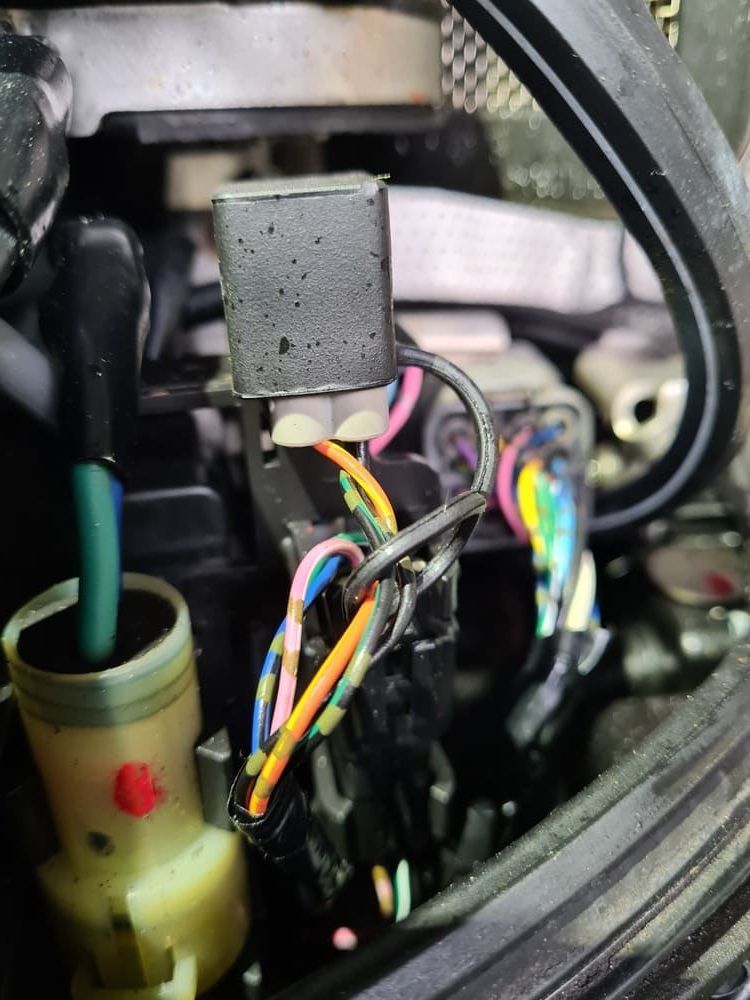How much is Marine Mechanic School?
How Much to pay for Marine Mechanic School?
A Guide for Aspiring Mechanics in Florida
Are you fascinated by boats and the mechanics that keep them running smoothly? Do you dream of a career that combines your love for the water with hands-on technical skills? If so, becoming a
mobile marine mechanic might be the perfect path for you. But before you can dive into this exciting career, you’ll need the right education and training. One of the first questions you probably have is, "How much is marine mechanic school?" This article will explore the costs associated with marine mechanic schools in Florida, providing you with a comprehensive guide to planning your educational journey. for more Information about this profession read about How to become a marine mechanic.

The Process of Marine Mechanic Education
Marine mechanic programs are designed to equip students with the knowledge and skills needed to maintain, diagnose, and repair marine engines and systems. These programs typically cover various topics, including:
- Marine engine systems (outboard and inboard)
- Electrical and electronic systems
- Fuel systems and carburetion
- Steering and control systems
- Boat rigging and maintenance
Types of Marine Mechanic Programs in Florida
In Florida, aspiring marine mechanics have several educational options, ranging from certificate programs to associate degrees. The cost of these programs can vary widely based on factors such as the type of institution, program length, and additional fees.
- Technical Schools and Community Colleges
- Certificate Programs: Typically last 6-12 months and focus on essential marine mechanic skills.
- Associate Degree Programs: Usually take about two years to complete and offer a more in-depth education, including general education courses.
- Private Marine Mechanic Schools
- Specialized institutions that focus exclusively on marine technology and often have more intensive programs.
Cost Breakdown of Marine Mechanic Schools in Florida
- Tuition Fees
- Technical Schools and Community Colleges: Tuition for certificate programs can range from $3,000 to $10,000, depending on the school and program length. Associate degree programs may cost between $6,000 and $20,000 for the entire two-year period.
- Private Marine Mechanic Schools: These schools often have higher tuition fees, ranging from $15,000 to $30,000 for comprehensive programs.
- Additional Costs
- Books and Supplies: Expect to spend between $500 and $1,500 on textbooks, tools, and other necessary supplies.
- Lab Fees: Some programs charge additional fees for lab use, which can range from $100 to $500 per semester.
- Uniforms and Safety Gear: Budget for uniforms, safety glasses, gloves, and other protective equipment, which might cost around $200 to $500.
- Living Expenses
- If you need to relocate or live away from home while attending school, consider the cost of housing, food, and transportation. Depending on your living arrangements, these expenses can add an additional $10,000 to $20,000 per year.
Financial Aid and Scholarships for Marine Mechanics
The cost of marine mechanic school can seem daunting, but there are numerous financial aid options available to help make your education more affordable. Here are some avenues to explore:
- Federal Financial Aid
- FAFSA: Complete the Free Application for Federal Student Aid (FAFSA) to determine your eligibility for federal grants, loans, and work-study programs.
- Pell Grants: These need-based grants can provide up to $6,495 per year (as of 2023) to help cover tuition and other educational expenses.
- State Financial Aid
- Florida Student Assistance Grant (FSAG): A need-based grant program for Florida residents attending eligible institutions.
- Bright Futures Scholarship Program: Offers scholarships based on academic achievement to Florida high school graduates attending in-state colleges and universities.
- Institutional Scholarships
- Many technical schools and community colleges offer scholarships specifically for students enrolled in their programs. Check with your school’s financial aid office for available opportunities.
- Industry Scholarships
- Various marine industry organizations, such as the American Boat and Yacht Council (ABYC) and the Marine Retailers Association of the Americas (MRAA), offer scholarships to students pursuing marine mechanic training.
- Employer Sponsorships
- Some marine businesses offer sponsorship programs where they cover part or all of your educational expenses in exchange for a commitment to work for them after graduation. This can be a great way to minimize debt and secure a job upon completing your training.
Return on Investment: Is It Worth It?
While the cost of marine mechanic school can add up, it’s essential to consider the return on investment. Marine mechanics are in high demand, especially in a boating haven like Florida. Here’s why pursuing this career can be a smart financial move:
- Job Opportunities
- Florida is a hotspot for boating activities, with countless marinas, boatyards, and marine dealerships. This creates a high demand for skilled marine mechanics.
- Earning Potential - How much does a marine mechanic make?
- According to the Bureau of Labor Statistics, the median annual wage for marine mechanics was around $41,330 in 2020. However, experienced mechanics, especially those with specialized skills, can earn upwards of $60,000 annually.
- Career Growth
- With continuous advancements in marine technology, there are ample opportunities for career growth and specialization. Further certifications and experience can lead to higher-paying positions and more job security.
Conclusion
So, how much is marine mechanic school in Florida? The answer depends on the type of program you choose and the specific institution. On average, you can expect to spend between $3,000 and $30,000 on tuition, with additional costs for books, supplies, and living expenses. However, with numerous financial aid options and scholarships available, the investment in your education can be manageable.
Considering the high demand for marine mechanics in Florida and the potential for a lucrative and fulfilling career, the cost of education is a worthwhile investment. By planning carefully and exploring all available financial resources, you can embark on a rewarding journey as a marine mechanic without breaking the bank.